On Motherhood: The Hardest Thing About Babies
The Hardest Thing I've Experienced as a Parent
I've been wanting to write this blog post for over four years because it was four years, seven months and two weeks(ish) ago (aka the day I became a mother) that my battle with this one difficult thing that I feel no parent really talks about.
No, it's not how hard sleep deprivation is (though I can talk about that until the cows come home as it's a topic I'm sadly very over-qualified in).
No, it's not how laborious, repetitive and stinky it is to constantly change dirty nappies. (Personally, I actually think this is one of the easiest parts of parenting a baby.)
No, it's not how painful and draining breastfeeding is, and how much energy it steals from your own reserves.
No, it's not how annoying it is to constantly clean up all the mess they create once you start giving them real food. I swear I have a form of Tennis Elbow called Wiping Surfaces Elbow.
No, it's not how heart-stoppingly scary it is when they're ill, although holding their little limp, hot and bothered bodies is easily the stuff of nightmares, but I do talk about this with my mum friends who all nod and agree instantly.
No, it's not how gross it is when dribble or vomit all over you. (Again, I would file this under "quite easy in the grand scheme of things" next to nappy changing.)
No, it's not how embarrassing it is when they fart in public because who knew a baby could fart as loud as a full-sized human!
What's the hardest thing about babies, to me?
It's how hard and difficult and soul-destroying and torturous it is when babies cry.
Yep, Crying.
The one thing that we know ALL babies do, crying is easily the thing I struggle with most as a mother. And I don't really talk about it with anyone. My partner, a bit. A few of my friends with kids of similar ages, maybe in passing. But I haven't had a lengthy conversation with another parent about how my crying babies have driven me to the lowest lows of mood and the highest walls of frustration and the deepest floods of (my own) tears.
So here I am about to do it on my very public blog.
Let's Talk About Crying Babies
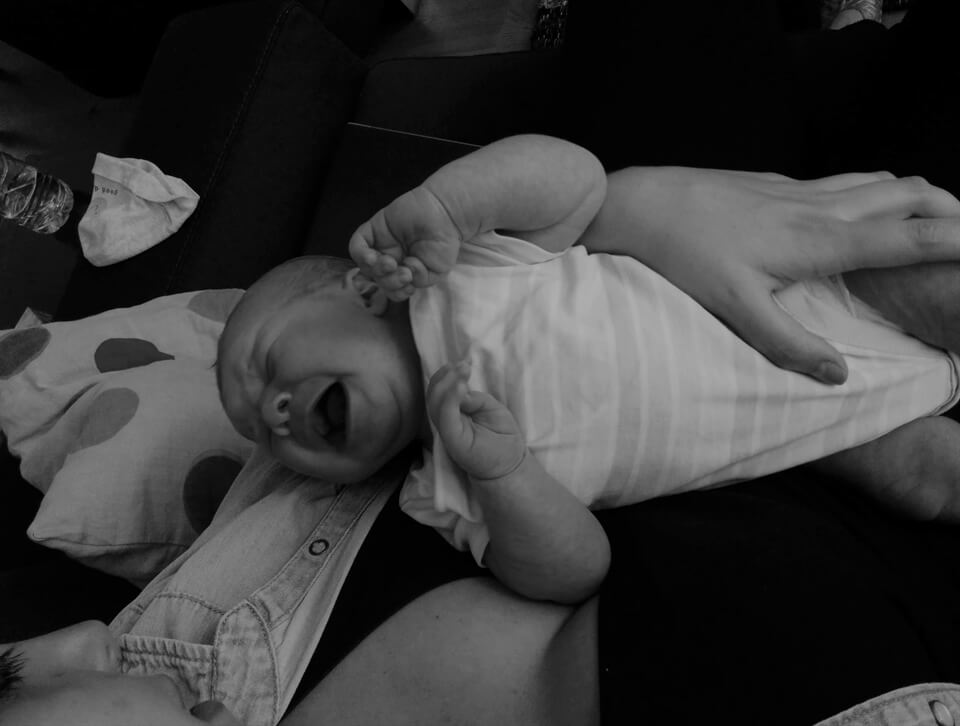
Let me be clear about a few things. I am a semi-intelligent, well-educated woman and I've read enough judgmental parenting articles to know that 1) Babies are supposed to cry; in fact it's arguably nature's most important survival skill, and 2) Parents - particularly mothers - are programmed to respond to their baby's cry. So, in turn I don't expect my baby NOT to cry, and in turn, I I don't expect my baby to cry and for me to feel nothing, or even to feel anything remotely positive. I know I'm supposed to react and do something to try and stop the baby crying. That's my part of the deal that Mother Nature is relying on me fulfilling.
However, I wonder if Mother Nature - or anyone else out there? - thought abut it long enough to see that this theory could be exploited. Yes, if I was going to be heartless I would say that it's regularly exploited by babies. I mean, they can just cry and cry and cry and cry and no matter what you try, they'll keep on crying. Is that not a flaw in this logic?
Because the alternative viewpoint, one which I know many to hold no matter how much they say they don't (and by the way "they" are often kid-free adults), is that my baby is crying because I'm not doing something it needs. That it is my failing.
It's actually quite hard to argue with this opinion. It is, after all, a message nature has already programmed me to receive as soon as my baby starts crying, and yet when my baby doesn't calm from a feed, a nappy change, a walk in his buggy, a cuddle in my arms, a bounce in his chair, some time in his baby carrier, etc... so of course I am going to turn up the volume on the voice inside me that is saying "Soothe your baby, help your baby, calm your baby."
And it's at this point that things start to fall apart for me... And honestly, when I'm in the thick of that noise both internal and external, I feel so utterly alone both in my failing to quieten my babies cries but to also manage just how incredibly SHIT this whole scenario makes me feel.
The Torture of a Baby Crying
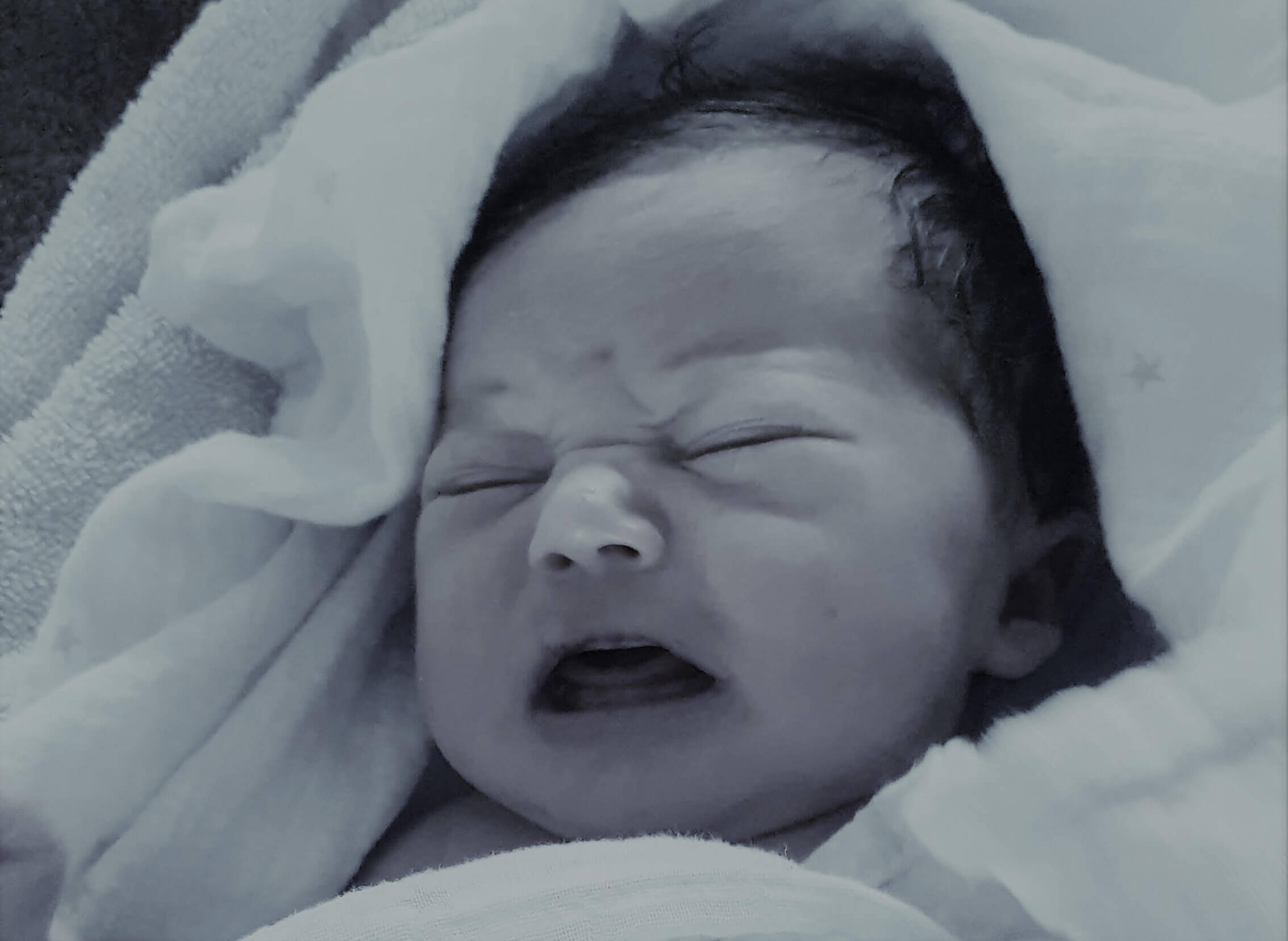
And yet there are signs I'm not alone. Last year, Japan Airlines announced they would give people the option to sit as far as they can from babies as they would be highlighted on a seat plan in advance. this excellent and hilarious Scary Mummy article names "sound torture" as just one of ten ways babies ruin us, and of course, in the past (and maybe in the present day too) intelligence agencies have also used babies crying as their sound torture of choice with prisoners.
More close to home, one of the things our fantastic maternity nurses (who come to your home for 8-10 days to help the family following the birth of your baby here in the Netherlands) are obliged to talk to post-partum parents about is how to deal with a crying baby.
After the birth of our first son we asked a lot of questions about this and she went into great detail about cases of Shaken Baby Syndrome that she knew of (after we asked her, I hasten to add). The stories were dark and disturbing and horrifying, and seemed so impossible to fathom, but in the months that followed her time with us, as my first baby boy drank and drank my milk, and grew and grew, and also cried and cried and cried and cried (sometimes for hours at a time), I had moments where the stories she told felt frighteningly within my realm of consciousness.
I could indeed imagine being so stressed out, so baffled and helpless, so broken and tortured by my baby's crying that I would do something stupid. Because again, there have been times - sometimes seconds, occasionally minutes, and hatefully the odd hour or two - when I have felt out of control, in physical pain, and losing touch with reality because of my baby's seemingly endless cries. The desperation you feel when all you want is your baby to silence, to still, to be soothed but THEY JUST KEEP CRYING is really the hardest regular experience I've had as a parent.
Nobody is ever going to say that dealing with a crying baby for any extended period of time is easy or pleasant. And yet, where is the acknowledgement then - at any level - that dealing with that crying baby for months on end could be a stand alone cause of serious mental health implications?
When I was diagnosed with post-natal depression and anxiety about 4-5 months after my first son was born, I discussed the possible causes with a therapist and I agreed with her that my lack of a support network close to home (I live in a different country from all of my family and many of my closest friends), sleep deprivation, and doing too much in the immediate weeks following my son's birth were primary factors.
But honestly, when I think back to those early weeks of just holding and rocking and walking a crying baby up and down our corridor in the morning's earliest hours, or bouncing up and down on my birthing ball trying to soothe him every evening during the "witching hour" (ahem HOURS!), I feel like that alone was what made me feel like I was losing my mind the most.
Is She Really Moaning About the Most Basic Parenting Thing of All - BABIES CRY!
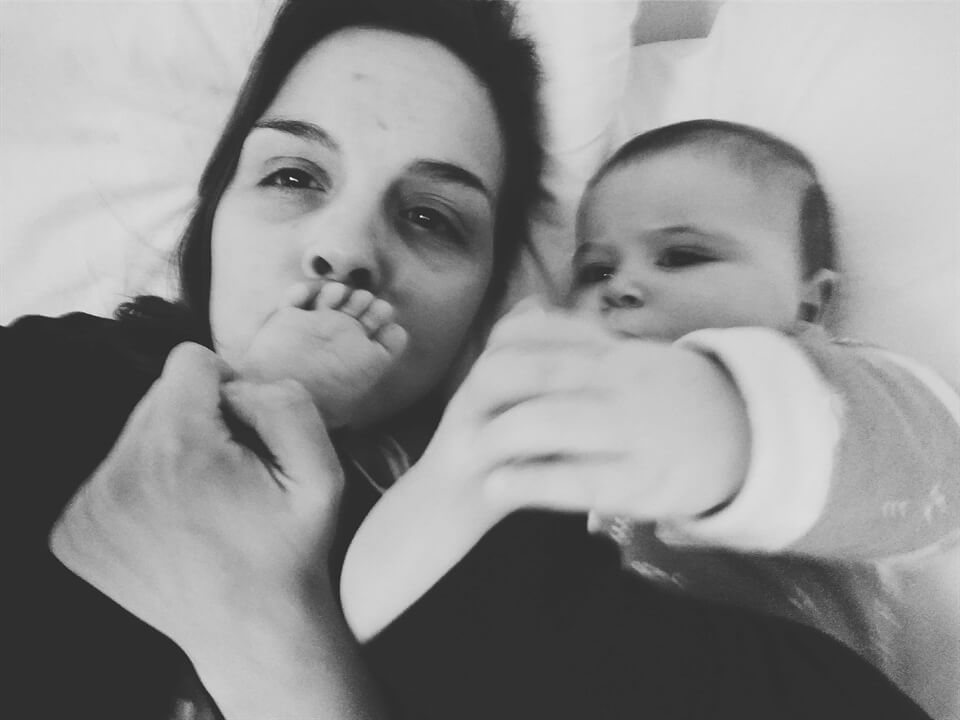
I'm not sure I'm moaning about babies crying (okay, yes, I'm definitely moaning a bit) I think I'm more wanting to see if I really am so alone in feeling so perplexed why this hardest and MOST COMMON of hard things isn't talked about more, certainly in comparison to other "hard things" we experience as parents.
But yes, let's take a quick reality check. My babies crying are not the end of the world. Life can serve up much harder, more horrific and harrowing things than a crying baby. In fact, going back to the original reason babies cry, a red-faced screaming, screeching newborn baby is the greatest gift of life of all,it's what all hope to hear the instant our babies are Earth-side, but now that I have survived raised two young children from newborn bundles of flesh to toddler terrors, I know with some degree of certainty that my level of enjoyment in parenting AND the welfare of my mental health is very much directly related to and influenced by how much those babies have cried. Sorry, nay sayers, but this is just a fact, albeit a very subjective one. The days and nights when my babies have cried A LOT, have been among the hardest I've experienced as a parent. And honestly, they have taken their toll.... But I've never really talked about that with anyone and also, nobody has admitted as much to me.
I have spent hours (okay, possibly weeks) talking about how hard it is getting only four or five hours of broken sleep a night, I am a horrible broken record when it comes to bemoaning the challenges we've encountered with my first son's diet, and I have written very publicly here about post-natal anxiety and depression. I am a fairly open book. I mean, every time I drink coffee with a fellow mum-friend we end up eye-rolling or face-palming ourselves about bugs at daycare, our kids biting or being bitten, or how truly IMPOSSIBLE it is to get two kids ready to leave the house by 8.15 EVEN THOUGH THEY WAKE UP BEFORE 6 EVERY DAY...
But honestly, I have never sat down with a fellow parent and said; "Sometimes when my baby cries and cries and cries, I feel like all I want to do is put him back in his cot, close the door, walk downstairs ...and then go find the nearest ten-floor window to jump out of."
This may sound extreme, but it's actually not. Or rather, it is, but it's also scarily common. One study found that up to 80% of mothers experienced varying levels of intrusive thoughts from negative self-talk and unwanted thoughts through to OCD-like-anxiety and thinking (and let's be clear, only thinking) about harming themselves or their baby. I am writing this today to say, This has happened to me. Many times.
The only time I've come close to actually having this conversation is with a friend who was going through sleep training at the same time as me. We would message each other as we sat outside bedroom doors listening to our babies cry as we waited the needed five, seven or ten minutes before we could go back in.
"Gah, it sucks."
"Go get a glass of wine!"
"Put your headphones on and listen to a podcast."
"It will be over soon... and it will be so worth it."
There was solidarity there, undoubtedly and wonderfully, but what I really wanted was to write: "I feel like I'm losing my mind. I am not sure I can do this. I don't want to be a mother anymore."
But I didn't. At least, not in those exact words. And because I didn't share, and nobody else would share anything like this and so I would just plough on regardless. Ignoring how I felt when my baby cried for any elongated period of time. The way my heartbeat rose, the way my shoulders fixed themselves higher and higher, the way my head would start to ache and my temples pulse. The way I would cry too, but quietly, quietly, because no more crying, no more crying... Please. No. More. Crying.
Eventually, yes, he would stop and I would stop, or my partner would step in, or family or a friend, if they were there, but when I have been a stay-at-home-parent for at least 70% of both my babies first years, I was often alone. I could write a separate post (of equal length or longer!) on the loneliness and isolation motherhood brings to many women's lives, but for now let it be understood that being alone with a crying baby only intensifies the experience. But yes, eventually my baby stopped crying, even when I was alone with him. However, ridding my body and mind of that intense build-up of stress once the baby is quiet? Did that happen? Where did it go? How much did I continue to carry around with me until the next time?
Phantom Crying is Real and Other Horror Stories
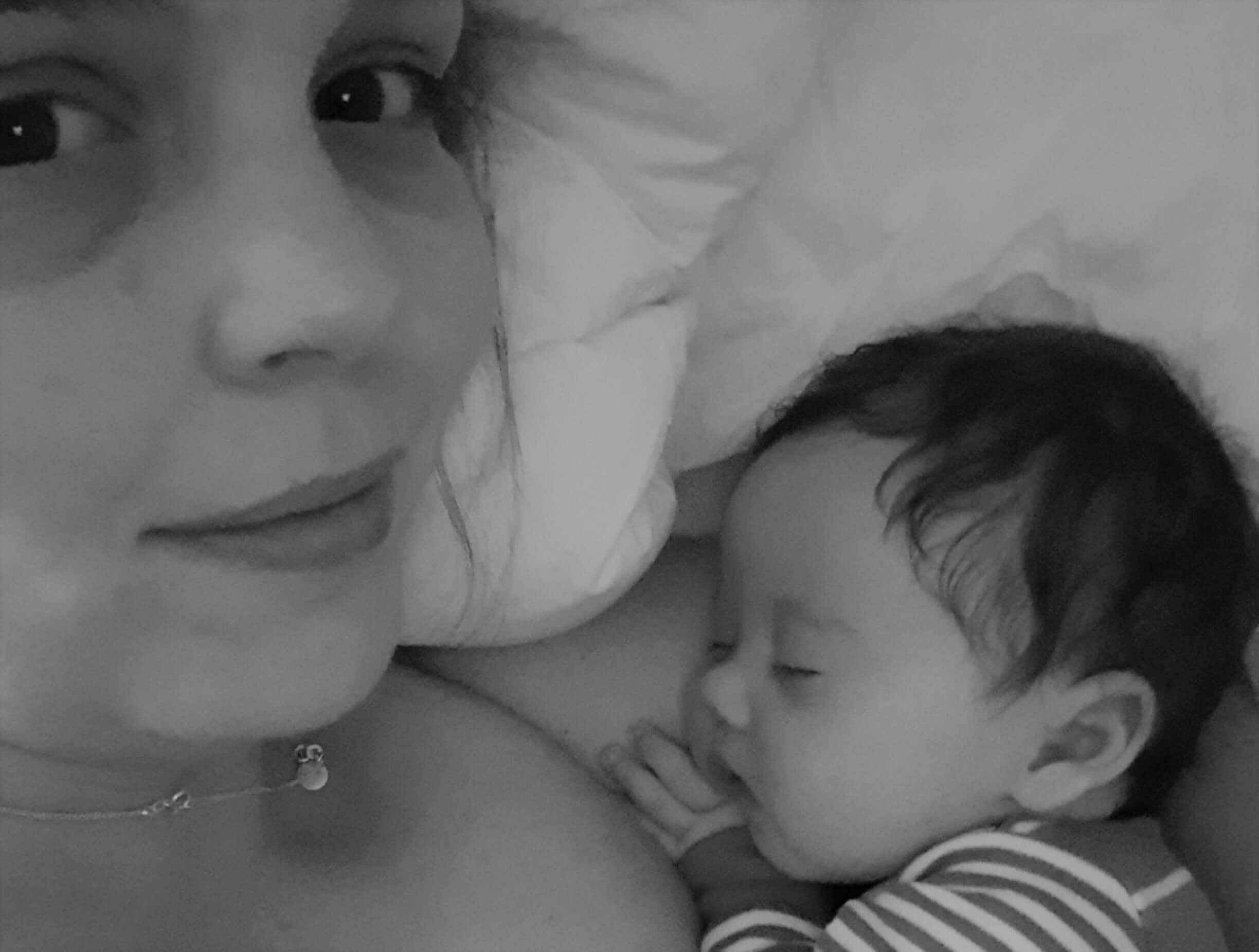
And then came the real kicker. after only a few weeks of being a parent I started hearing my baby cry, even when he wasn't crying.
Phantom crying is a very real thing. I would be taking a much longed-for hot shower and I would turn the tap off so convinced I could hear my baby crying when I thought he was sleeping, but then silence. Sometimes I would even get out of the cubicle, shampoo still in my hair, water dripping behind me as I stumbled to the bedroom, so unable to trust my own ears, so loud were the wails I heard in my head. Yes, you guessed it; he was sleeping soundly in his cot. There were more than occasions when phantom crying would strike even when my baby boy was out of the house with his father.
Peculiarly, I didn't experience phantom crying with my second child during the newborn stage of his life. In fact, it was only recently that I had my first phantom crying incident and it was only after a particularly tough 48 hours that saw his first tooth cut through. My baby was about five months old and until those hard few, drool-soaked days, I was just going to bed myself when I would stop mid-way through pulling my pyjamas on and be convinced I could hear him crying out down the corridor.
The sensation is an odd one. It's not dissimilar to when I was a kid myself (long after the crying baby stage, thank goodness) and I would go to the swimming pool where they had a wave machine. We would spend hours bobbing up and down in those waves, and then later, as I lay in bed, drifting off to sleep I would feel the movement of the waves again. This is called (quite grandly, I think) illusions of self-motion and our sensitivity to this is caused by the vestibular system, and I happen to have a very sensitive vestibular system or inner ear which is why I struggle with travel sickness.
Phantom crying is related to this and is considered an auditory illusion, and there are good reasons why the particular sound of a crying baby is so ingrained in new parents' brains. This whole article on Mic is really worth reading if you have ever experienced phantom crying, but I want to cut and paste this extract because it really highlights some very valid findings in line with what I'm banging on about in this post.
"There is scientific evidence that infants’ and children’s crying increases sympathetic nervous system (SNS) arousal. For many parents, this means instantly being awake, palms sweating and heart pounding the moment they hear their baby crying. “One of the classic findings in stress research — initially done by endocrinologist Hans Selye — is that prolonged SNS arousal takes a toll on the body, putting stress on the heart and weakening immune system responses,” says Randolph Cornelius, a professor of psychological science at Vassar College. “Prolonged SNS arousal wears the body down, essentially, but also puts a person in a permanent state of vigilance, which is wearying. So, prolonged infant crying does take a real toll on a person.”"
Source: Phantom Cry: Why new parents are hearing their babies cry even when they aren’t
This all leads me to think that the stress we feel when babies cry - especially at length and/or when we are also utterly exhausted - is something we should talk about more. Because if we don't, who knows what the consequences are?
Actually, we do know what some of the consequences are...
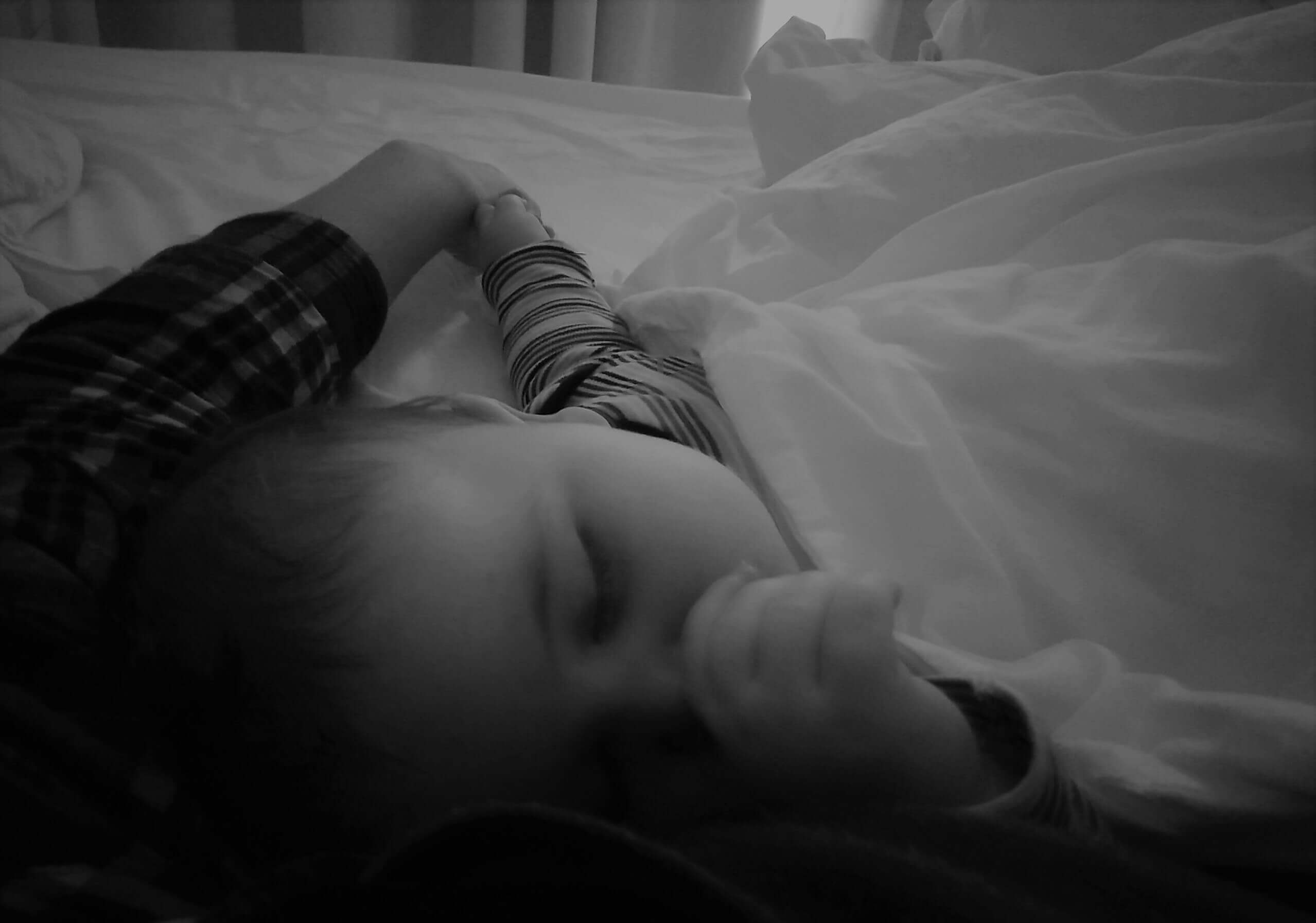
Post-natal depression. Post-natal anxiety. PTSD. Intrusive thoughts. Suicidal thoughts. Post-partum psychosis.
These are just some of the maternal mental health problems that we know mothers experience with an alarming regularity in the early months of parenthood. (Forgive me in advance the focus this section will have on maternal mental health but simply put, there is much more research available about this rather than the father's experience (which is a tragic oversight in itself). My intention is never to exclude fathers, male or non-binary guardians from the discussion but rather to paint the picture that we know beyond doubt is showing that many mothers are struggling.)
One report suggested one in five mothers experience maternal mental health problems, and between 15-20% of women experience anxiety or depression (or both) in the 12 months after a baby is born. 1 in 2 women will be diagnosed with post-partum psychosis (an utterly devastating illness that often requires hospitalisation and very strong medication - read one woman's experience here), and then there is the research that stopped me in my tracks: it is estimated that a quarter of all maternal deaths are related to mental health problems. Woah.
Then there are the more physical conditions that come to light as a result of the (understandably necessary) dramatic changes your body experiences if you grow and birth a baby yourself, not to mention the impact of childbirth on a woman's mental health (for a whole myriad reasons). My very good friend Jenny experienced post-partum thyroiditis (pregnancy can often trigger thyroid problems) and as you can read in her blog here, it was the most unforgiving and frightening condition, something which not only affected her mental health at the time, but due to missed diagnosis and poor treatment she has struggled with additional anxiety and low moods.
Furthermore, the situation is much bleaker if you happen to be a woman of colour as there is a proven bias in the way women of colour are cared for in the perinatal period, resulting in the frightening stat that they are FIVE times more likely to die during this time than white women. One report in the US (which admittedly has higher maternal mortality rates for women of colour AND in general) estimated that around 38% of women of colour experience post-natal depression compared with the national average of 13-19%.
These stats come with a huge and important caveat: perinatal mental health problems are often ignored by the mothers themselves, and therefore often don't make it through the door of a doctor's office to then be officially diagnosed, and so I would hazard a semi-educated guess that all of these percentages and numbers are very much on the conservative side. In short, we can be confident in the reality that many, many, many women are struggling with maternal mental health.
And all of these struggles, all of this sadness and lack of vitality and positivity, all of this is often happening when a mother is the primary carer to an incredibly needy, vulnerable small human being that often cries and cries and cries and cries... It's a dire chicken and egg situation, which again is an ironic metaphor considering the maternal theme!
Wait a minute. But you WANTED kids...
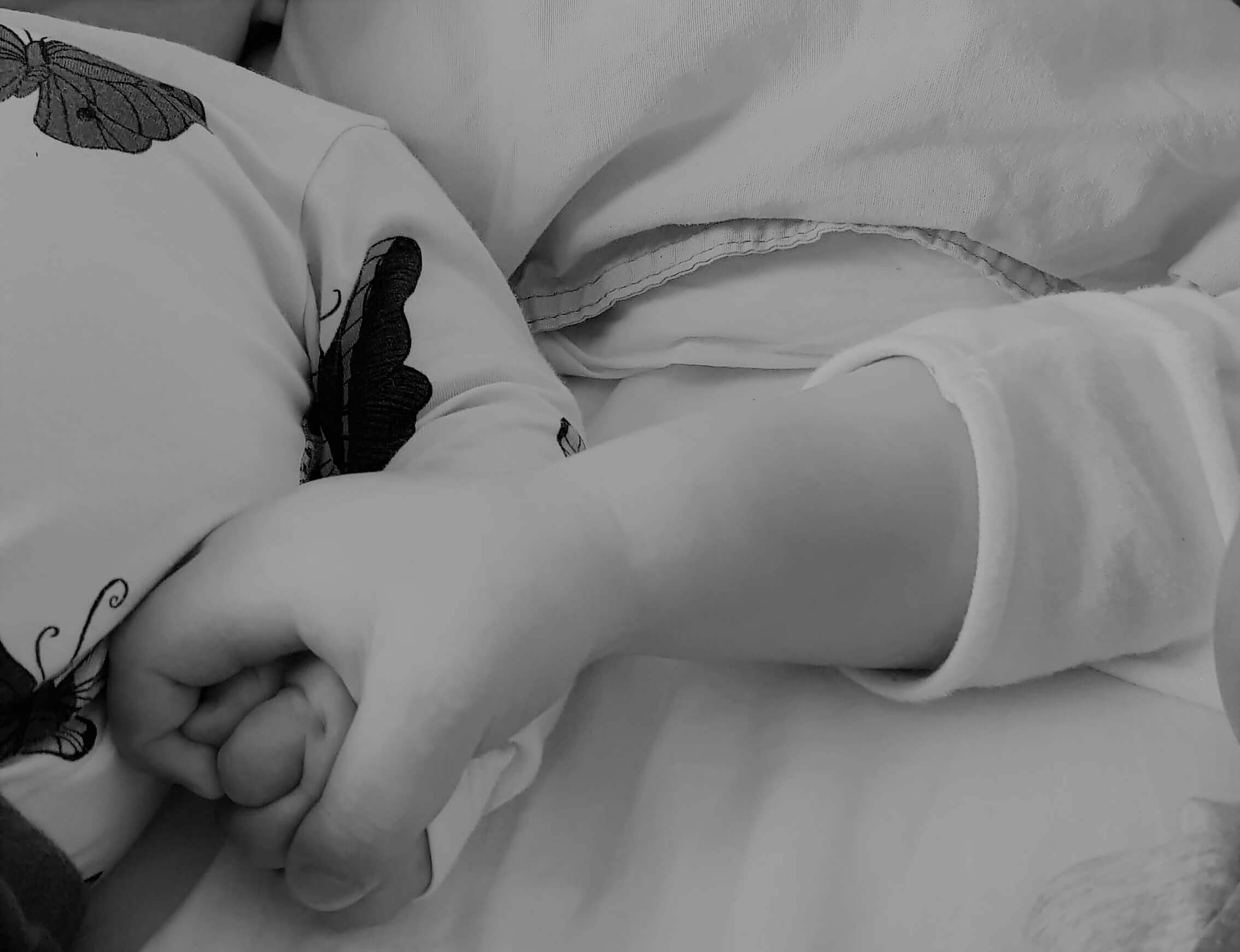
You're right. But that's not a helpful thing to say to me or anyone. In fact, it's incredibly unhelpful.
A depressed or anxious mother isn't going to hear this and suddenly snap out of the seriously unwell mental state she is in because you tell her that she wanted children so she has to put up with everything this brings to her life. It is, however, the kind of comment that keeps those women struggling to stay quiet, for fear of judgement, ridicule or criticism.
Let me go further and tell you the one thing that tortured me most during my early months of motherhood, and honestly at many times since. It's the fact that "I did it to myself". I wanted kids. I made the kid. I proudly grew the kid. I pushed him out of my body and made all sorts of sweet promises to his beautiful wrinkled forehead as I kissed him over and over and over in his first few minutes of life...
But then, just a few weeks later, I started looking for the Undo button.
Nobody told me I would mourn my old pre-kid life and self like I had just lost my best friend, the grief leaving my breathless and paralysed at times.
Nobody told me the way I saw myself and the way others saw me would literally change overnight... and not for the better.
Nobody told me I wouldn't like what I saw in the mirror despite me working my hardest day in, day out doing the MOST IMPORTANT job in the world.
Nobody told me that the sound of my kid crying at length would literally push me closer to the edge of an imaginary cliff that I would sometimes yearn to jump off...
Of course they didn't. It's nobody's job to tell me how parenthood would affect me. But I don't want to stay silent about just how hard being a parent can be EVEN WHEN THAT IS WHAT YOU WANT TO BE MORE THAN ANYTHING IN THE WORLD. These two things are not mutually exclusive. The sooner I started to accept that and let it be a sad, difficult but truer than true fact, the easier it became to actually deal with all those hard feelings and for me to walk slowly away from the edge of the cliff.
I still hate it when my youngest boy cries. It still affects me in ways I can't quite get a grip on. Being honest still - and hey, why stop now! - I still also feel a vaguely similar uncomfortable reaction when my eldest boy screams and shouts during a meltdown. But I am much, much better at handling the negative thoughts and self-talk that accompany these moments, because I have had many years of practice and I have learned the hard way what does and doesn't work in terms of me managing not only a crying child, but also my reaction to it.
It's not perfect. It's still hard. Some days still floor me with how challenging, exhausting and unrewarding they feel. Such is life as a parent (or human being) but just writing this article and acknowledging how much my kids' screams, wails, cries, shouts and moans (oh, man, the moaning!) are part of that struggle helps me a little.
How to Survive a Crying Baby
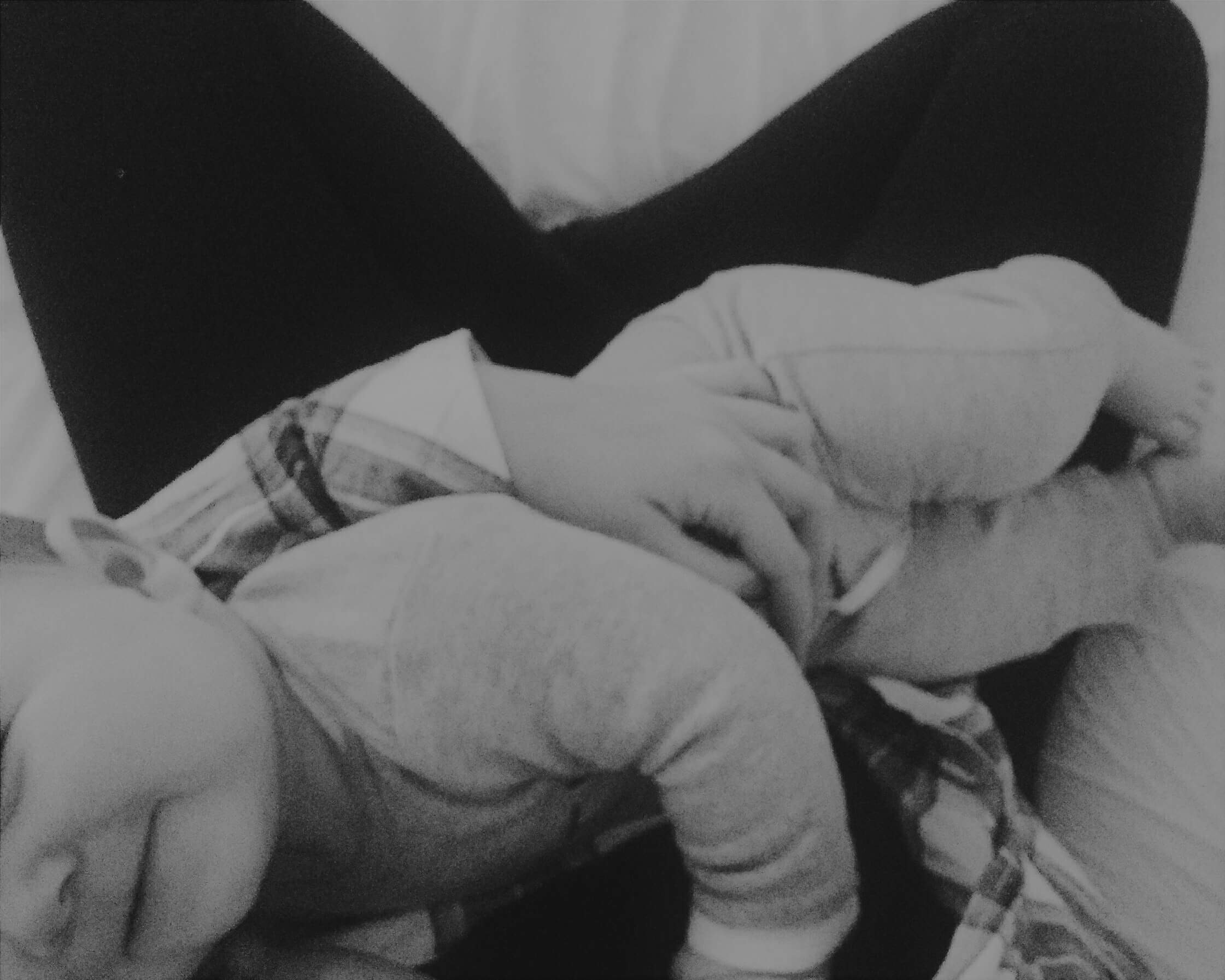
In the original drafting of this article I included a section at the very end sharing all of my best tips for helping parents survive crying babies. But as I wrote out what had (and had not) worked for me I realised that they needed a home of their own, a separate blog post that would be just for those people who don't need to understand how much babies crying suck, because they already know. They don't need a reminder, they need practical tips and encouraging advice. They want to know how they can self-soothe while also soothing a baby.
So I picked up all the tips I wrote and dumped them in their very own blog post so you can immediately jump to get all the tips and advice you want to help you survive a crying baby here.
I hope this article helped soothe you in some way be it making you see you are not alone in feeling deep, deep despair when you baby or child cries extensively (or not even!). With all the words I write about parenting that really is my single goal; to make another mother, father, guardian or carer feel like they are not the only one struggling with very real and very normal struggles of raising children.
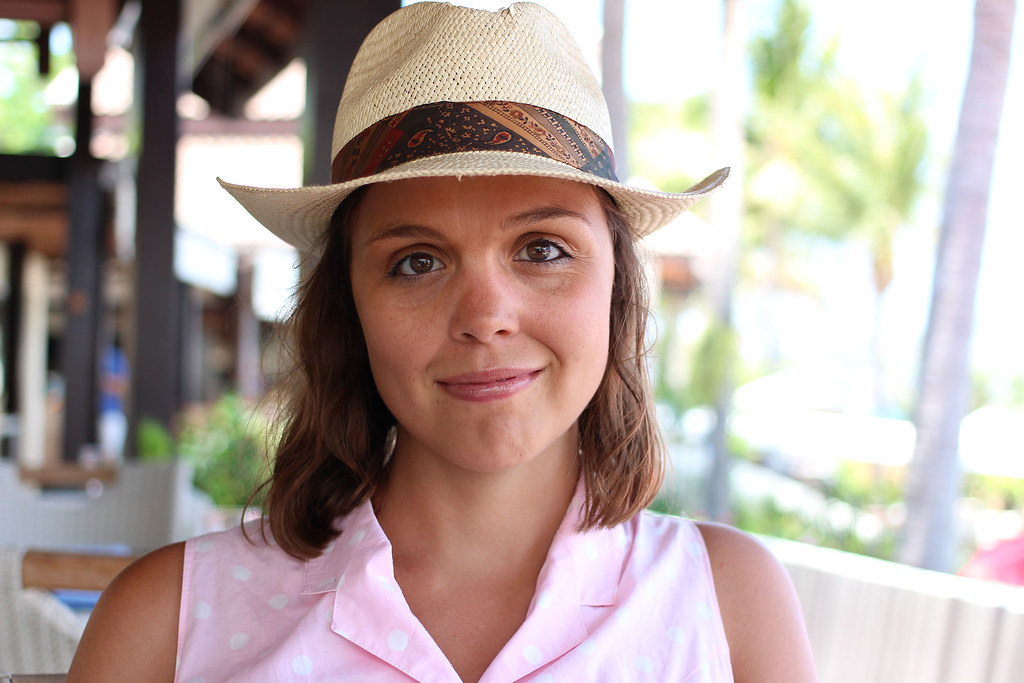
Frances M. Thompson
Find Frankie on Facebook, Twitter, Instagram, Pinterest, and Google+.
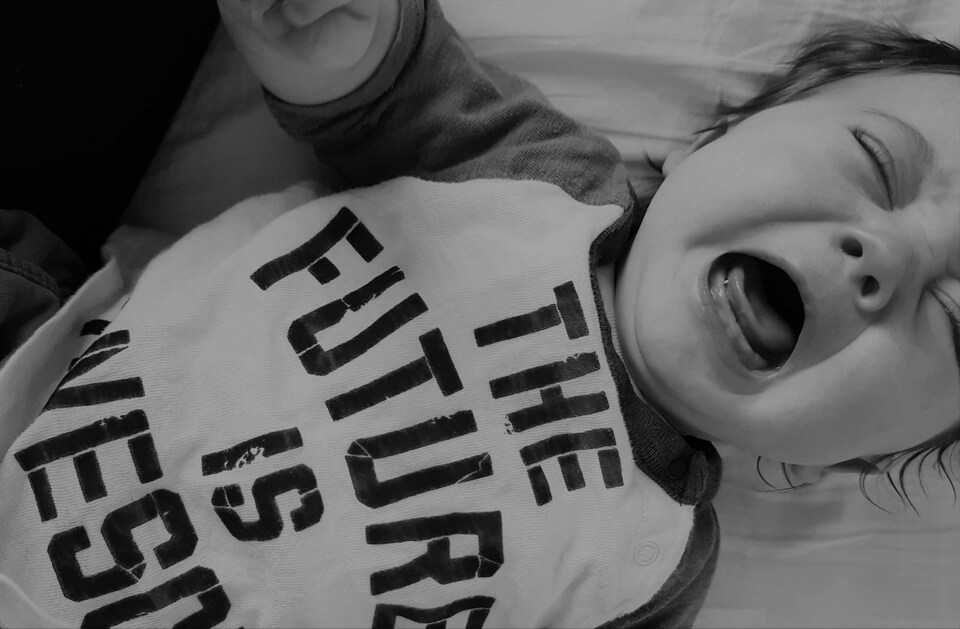
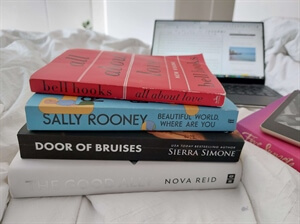 Book Reviews: Mid-Year Book Report 2022
Book Reviews: Mid-Year Book Report 2022 My Thoughts: The Life-Enhancing Joy of Romance Novels
My Thoughts: The Life-Enhancing Joy of Romance Novels My Thoughts: 21 Things That Helped Me in 2021
My Thoughts: 21 Things That Helped Me in 2021 Family Travel: How to Travel with Kids - My Golden Rules
Family Travel: How to Travel with Kids - My Golden Rules Self-Love: Self-Care Activities for Kids
Self-Love: Self-Care Activities for Kids About the Blog & Frankie
About the Blog & Frankie Welcome to My Amsterdam Travel Blog!
Welcome to My Amsterdam Travel Blog! Welcome to My Luxury Family Travel Blog!
Welcome to My Luxury Family Travel Blog! Welcome to My Writing Blog!
Welcome to My Writing Blog! Lover Mother Other: Poems - Out Now!
Lover Mother Other: Poems - Out Now! I Write Stories That Move You
I Write Stories That Move You Order WriteNOW Cards - Affirmation Cards for Writers
Order WriteNOW Cards - Affirmation Cards for Writers Work With Me
Work With Me